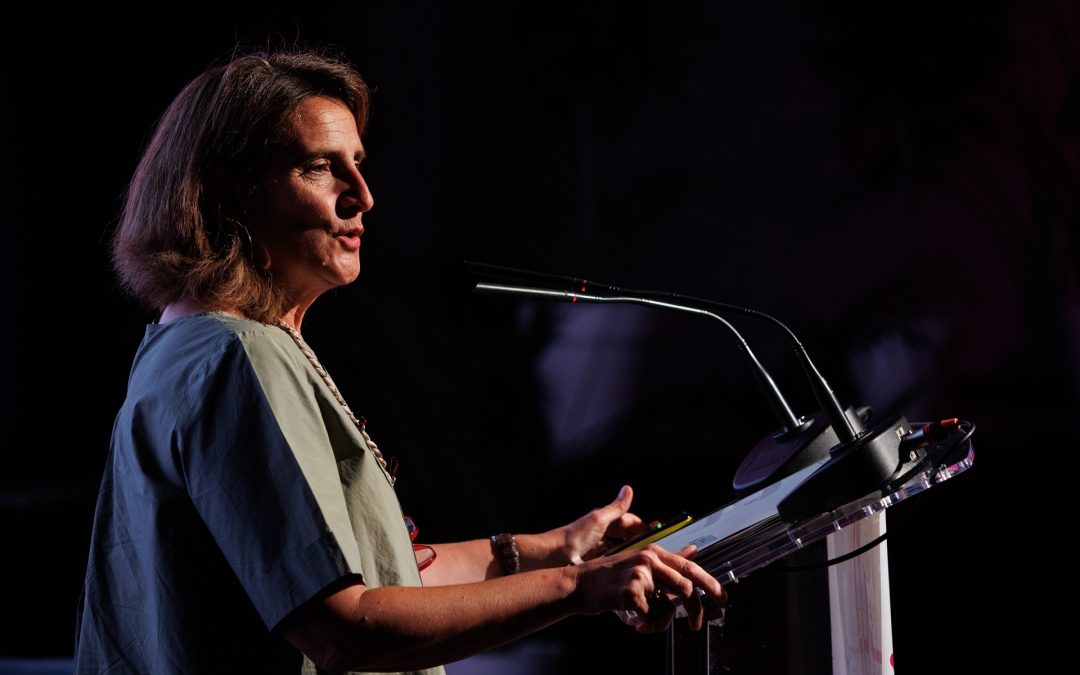“`html
Brussels – The candidate for Executive Vice President of Clean Transition and EU Competition Commissioner, Spanish socialist Teresa Ribera, wants to ensure that the EU remains a place for the production of battery electric vehicles (BEV) and preserves domestic manufacturing capabilities in a sector that is “vital” for the green transition and climate goals against China’s illegal doping of its sector.
Ribera points this out in her response to the written questions addressed to her by MEPs ahead of her hearing as the designated commissioner, which she must pass to confirm her position, scheduled for November 12.
In that questionnaire, Ribera also supports the investigation against China for illegal subsidies to the electric car production by the European Commission, which “was based on facts and solid evidence and conducted in accordance with World Trade Organization (WTO) rules.”
Based on that investigation, Brussels took the first step in summer to impose a levy of up to 35.3% on Chinese battery electric vehicles to compensate for Beijing’s illegal subsidies that allowed Asian giant manufacturers to produce at much lower prices than their European rivals.
The new tariffs, which add to the 10% already applied by the EU to car imports and will therefore raise tariffs up to 45.3% for some manufacturers, will come into effect on October 31, following publication the previous day in the EU Official Journal (OJEU).
In any case, Brussels insists that dialogue remains open with the Chinese authorities to seek an “alternative” solution. “The Commission is working to find a negotiated solution for the BEV case that complies with the WTO, is effective and enforceable,” the Spanish politician indicates in her written response, in which she also points out that this case “does not replace” the European automotive industrial strategy.
Looking ahead, she adds, it will be necessary “to conduct a broader strategic debate on the future of the automotive industry in the EU using all available policy tools in a coherent manner, in order to achieve a transition and ensure a green, competitive and well-functioning automotive industry value chain in Europe.”
On the other hand, Ribera, who as Spain’s Minister for Ecological Transition has been a staunch detractor of nuclear energy, has decided to shelve her reservations in her role as designated vice president and acknowledges in her response to Parliament the role of atomic energy in decarbonization.
This is a gesture to Member States that, like France, have a high percentage in their energy mix compared to others, like Spain or Germany, which have opted for the deployment of renewables.
In this context, Ribera recalls that in February 2024, the Commission launched an Industrial Alliance to facilitate the cooperation of stakeholders at the EU level, accelerate the deployment of small modular reactors (SMR, by its English acronym), and ensure a “robust” EU supply chain, including a skilled workforce.
In this way, she notes, “EU manufacturing and innovation capabilities will be harnessed to accelerate the deployment of the first SMR projects in the EU by early 2030 under the strictest standards of nuclear safety, waste management, environmental sustainability, and industrial competitiveness.” (October 23)
“`
 go to the original language article
go to the original language article
